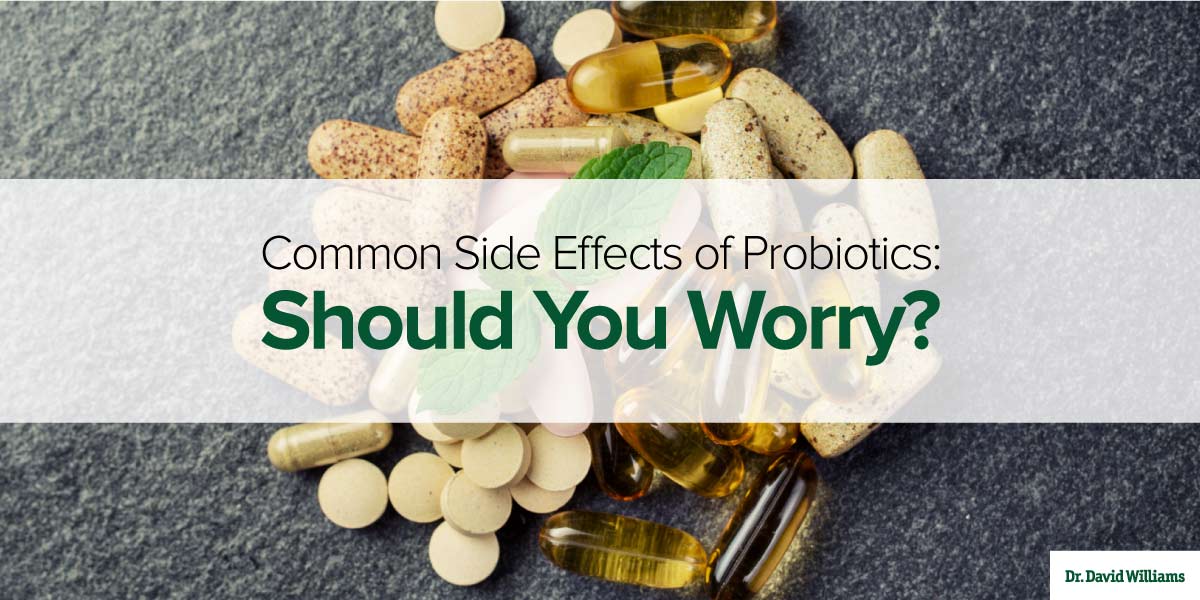For most people, taking a quality probiotic supplement doesn’t have any side effects other than higher energy and better digestive health. But for some—particularly those whose gut bacteria have been out of balance for years—there can be a “transition period” when existing problems, such as gas and bloating, actually can be aggravated.
This aspect of taking probiotics isn't often discussed, which is unfortunate. Many people look at their worsening symptoms and conclude that not only is the supplement not working as expected, but it's actually making their situation worse. Consequently, they stop taking the product before it has a chance to help them.
If you're experiencing probiotic adverse effects, please understand that while the symptoms may be inconvenient (and admittedly, occasionally embarrassing), they also are temporary.
Probiotic Adverse Effects
The normal pH of the colon should be somewhere between 6.7 and 6.9. Remember that 7.0 is neutral; anything below that is acidic and anything above that is alkaline. To inhibit pathogenic bacteria and at the same time encourage beneficial bacteria, the colon should be slightly acidic.
The use of antibiotics and other drugs, chlorine in the water, sugar, and a host of other factors tend to alkalinize the colon over time. Restoring more of the beneficial bacteria in the colon with probiotics will start to change the pH of the colon back to a slightly more acidic state—a much more hospitable environment for them.
This can be a struggle in the beginning because the other bacteria are so firmly entrenched. As this shift in bacterial flora is occurring, it’s not uncommon to feel more rumblings, gas, and possibly looser stools. In almost all cases, this is temporary.
However, if you’re taking antibiotics or other drugs that kill good gut bacteria, the transition could take a long time or may never happen. Common medications such as painkillers, analgesics, steroids, anti-inflammatories, sleeping pills, birth control pills, antacids, vaccines, and many others either kill or interfere with the growth of beneficial flora. If you can eliminate or, at the very least, minimize these drugs, you have a much better chance of restoring your bowel flora to normal.
In these cases, increasing beneficial bacteria in the colon with probiotics could enable even more gas-forming bacteria to enter the small intestine, causing a more extreme reaction. In these rare situations, the lack of stomach acid and digestive enzymes must be addressed before adding probiotics.
Adverse effects to probiotics can also occur if you use poorly designed probiotic supplements. Probiotic supplements should be designed so the live, beneficial bacteria can survive and not be released until they reach the colon. If released prematurely in the small intestine of someone with low levels of stomach acid and digestive enzymes, it leads probiotic adverse effects. A high-quality, well-designed probiotic is necessary if you want to achieve best health results possible.
Whatever you do, don't discontinue the use of probiotic supplements. Doing so may get rid of your transition symptoms, but it won’t give the good bacteria a chance to take over. Be patient, and soon your symptoms will dissipate and you'll begin to experience all the beneficial effects of taking a probiotic.



